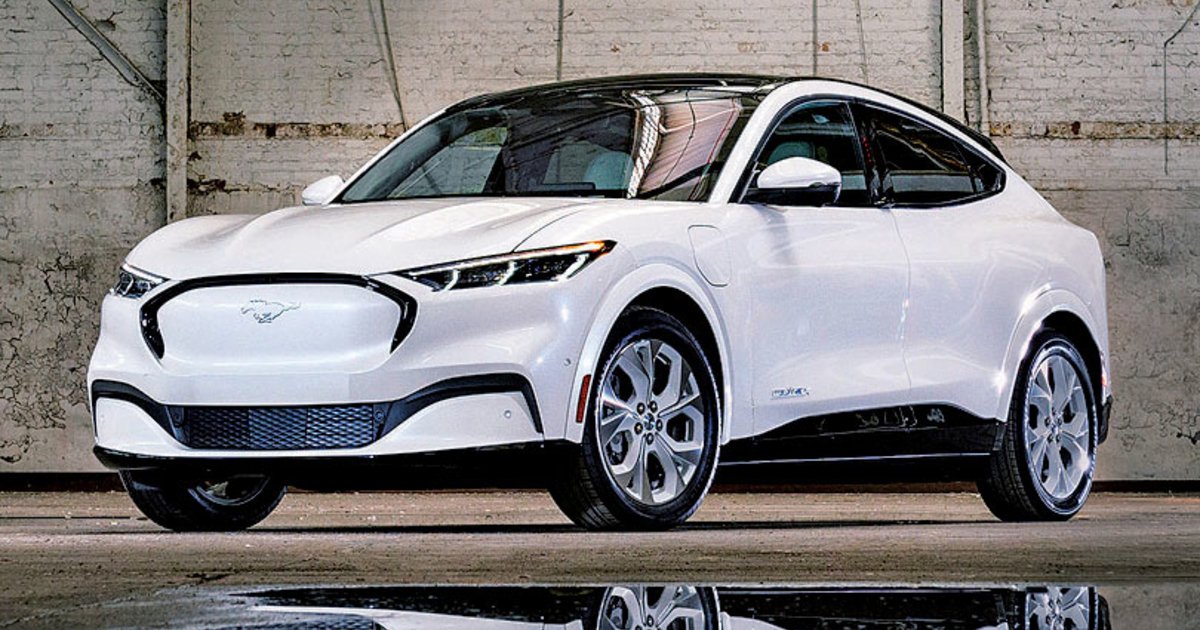
Hyundai Motor Group has out-galloped Ford Motor Co. for the No. 2 spot in the U.S. EV horse race.
Through August, the South Korean auto group reported 43,072 new registrations of electric vehicles across its Kia, Hyundai and Genesis brands — accounting for a combined 9.4 percent segment share, according to data from Experian Automotive. Hyundai registrations more than doubled; Kia’s more than quadrupled. Ford’s also more than doubled, but it still slipped to third place.
The landscape is changing however, as the Korean brands’ EVs, which are all imported, stopped qualifying for $7,500 tax credits when President Joe Biden signed the Inflation Reduction Act on Aug. 16. Ford’s North America-built Mustang Mach-E crossover, F-150 Lightning pickup and E-Transit 350 van all qualify for a $7,500 EV tax credit for the remainder of 2022.
Through August, Ford reported 33,354 new EV registrations, up 111 percent, for 7.3 percent of the EV market, powered by strong demand for the Mach-E. The crossover reported 25,596 registrations — making it the third best-selling EV in the U.S.
The three South Korean brands, with ambitions to bring four new EVs to the U.S. by the end of next year, represent a formidable competitor.
EV industry analyst Sam Abuelsamid noted that Hyundai Motor Group has had the advantage of more models available in higher volumes through most of this year.
“The Lightning didn’t start shipping in significant volume until July, and Ford is still facing a variety of production constraints due to various component supplies,” said Abuelsamid, principal analyst at Guidehouse Insights.
Some Hyundai group models may qualify for incentives again with the company’s plans to build a $5.5 billion EV and battery factory near Savannah, Ga., and make an electric version of the GV70 crossover in Montgomery, Ala., this year.
Moreover, the hot-selling Mach-E could see its momentum slow next year if it loses tax credit eligibility as new sourcing rules take effect.
Ford and the rest of the legacy pack have much catching up to do with EV front-runner Tesla.
The Austin, Texas, EV maker claimed 65 percent of new EV registrations through August, down only slightly from its 66.2 percent share a year earlier. Four of the five most-registered EVs through August were Teslas.
Overall, EV registrations climbed 56 percent year over year. Through August, EVs accounted for a record 5 percent share of U.S. light-vehicle total registrations, compared with 2.6 percent a year ago.
According to data from Experian, legacy automakers and non-Tesla startups posted 61 percent EV growth through August, with 160,403 registrations among 22 brands.
Automakers have introduced nearly 15 EV models in the U.S. since the beginning of 2021, with eight launched this year, according to EV subscription startup Autonomy.
The competition is gnawing at Tesla’s early lead. Autonomy projects Tesla’s share of EVs sold in the U.S. will fall below 40 percent by the end of next year.
Abuelsamid sees General Motors emerging as a strong EV player by early 2024.
“There is a good chance that GM will overtake Ford and Hyundai Motor Group with the launch of the high-volume Silverado, Equinox and Blazer EV models,” he said.
Since Tesla doesn’t break out U.S. sales results, registration data, which takes several weeks to compile, provides the best view into Tesla’s performance relative to its rivals.
For now, the Tesla juggernaut is not just dominating in EVs but the entire luxury segment — regardless of fuel type.
Through August, Tesla saw registrations climb 54 percent year over year as it cranked up its second U.S. factory.
Tesla’s new-vehicle registrations from January through August rose from 194,202 a year ago to 298,383.
Meanwhile, new registrations for BMW — last year’s luxury segment leader — fell by 11 percent to 211,118 vehicles.
Mercedes-Benz saw a 7 percent slide to 183,509 vehicles, while inventory-challenged Lexus tumbled 20 percent to 180,520 vehicles, according to Experian.
Tesla’s Model Y crossover and Model 3 sedan led in EV registrations, accounting for more than half of all EV registrations through August.
Model Y registrations climbed 28 percent from the prior year, while Model 3 regs rose 53 percent.
But Mustang Mach-E registrations grew faster than both Tesla models through August, soaring 62 percent from a year ago.
The Hyundai brand’s Ioniq 5 crossover, with 16,929 new registrations, accounted for a 3.7 percent share of the U.S. EV market through August. And after seven months on the market, the Kia EV6 captured a 3.4 percent share, with 15,612 new registrations.
Brands losing ground in the EV race this year include Chevrolet, which saw a 35 percent dive to 16,505 new registrations through August, while Volkswagen had a 15 percent decline to 9,127 new registrations. Porsche is also losing ground, tumbling 21 percent to 5,405 new registrations, while Jaguar fell 68 percent to just 286 vehicles.